Section 7 Challenges to Businesses
7.1 Introduction
This section breaks down five specific subtopics measuring current and prospective owners’ challenges. They include questions about financial management, marketing / advertising, business regulations, location or physical space, and personnel challenges. Respondents could select from the following four response options: major challenge, minor challenge, no challenge, or I don’t know / prefer not to answer. Data presented in this section modified the response categories so that those who indicated major or minor challenge were categorized as ‘Challenge,’ those who stated no challenge were still ‘No Challenge,’ and anyone that answered they did not know or preferred not to answer were excluded from all analyses presented below. Please see the tables in the Appendix for the distribution of those four response categories across all questions related to challenges faced by current and prospective owners.
In addition to questions about challenges faced by current and prospective owners, this section also includes summaries of the open-ended responses to respondents’ experiences starting or operating their business in Forsyth County and the county’s business community / entrepreneurial ecosystem.
Analyses to detect differences between respondents were conducted for challenges faced by current and prospective owners and the demographic variables of business and/or entrepreneurial role, gender, family-owned businesses, and stage of business development. We only show the results we are sure are real, not just by chance. However, some visual differences between the groups may be due to chance. Also, just because we do not see a difference between the two groups, it does not mean there is not a real difference. It means we do not have enough information to be sure.
7.2 Key Findings
- More than three-quarters of current and prospective owners describe accessing capital / financial resources, inflation / increasing costs, and growing the business / product development as financial management challenges. 92% of prospective owners identify accessing capital / financial resources as a challenge compared to 72% of current owners.
- 73% of current and prospective owners describe marketing / advertising challenges, and just over two-thirds indicate writing a business plan is a challenge for them. The percentage of owners who describe writing a business plan as a marketing / advertising challenge varies by the development stage of the business.
- More than half of current and prospective owners describe complying with business regulations, taxes, and laws (62%), accessing the information on business regulations, taxes, and laws (61%), and registering a business with the State of North Carolina (56%) as challenges. More prospective business owners (69%) describe registering a business with the State of North Carolina as a challenge, and the stage of business development is related to whether or not complying with business regulations, taxes, and laws is a challenge.
- More than half of current and prospective owners describe general safety or security (61%); shoplifting, theft, or vandalism (60%); finding a location for their business (57%); and physical building condition(s) of their business (57%) as a challenge. Prospective owners (71%) and current owners (49%) have challenges finding a location for their business, and men (58%) are almost twice as likely as women (31%) to report challenges with the tenant or landlord issues.
- More than half of current and prospective owners describe recruiting or retaining employees (63%) and training employees (57%) as personnel challenges. More men (72%) than women (45%) reported challenges with training employees.
- At least half of current and prospective owners indicated that language barriers were challenging across this section’s varying issues. The percentage ranged from 50% to 62% across all respondents.
- Several current and prospective owners highlighted the need for more favorable policies for new business owners and opportunities for continued learning, such as entrepreneurship training, consulting support, tax training, and legal advice for licenses and insurance based on their experience.
- Respondents feel several areas could improve to support the local entrepreneurial ecosystem in Forsyth County, including a need for more startup resources, a better understanding of local business environments and policies, greater access to loans and networking opportunities, and more favorable startup conditions.
7.3 Financial Management Challenges
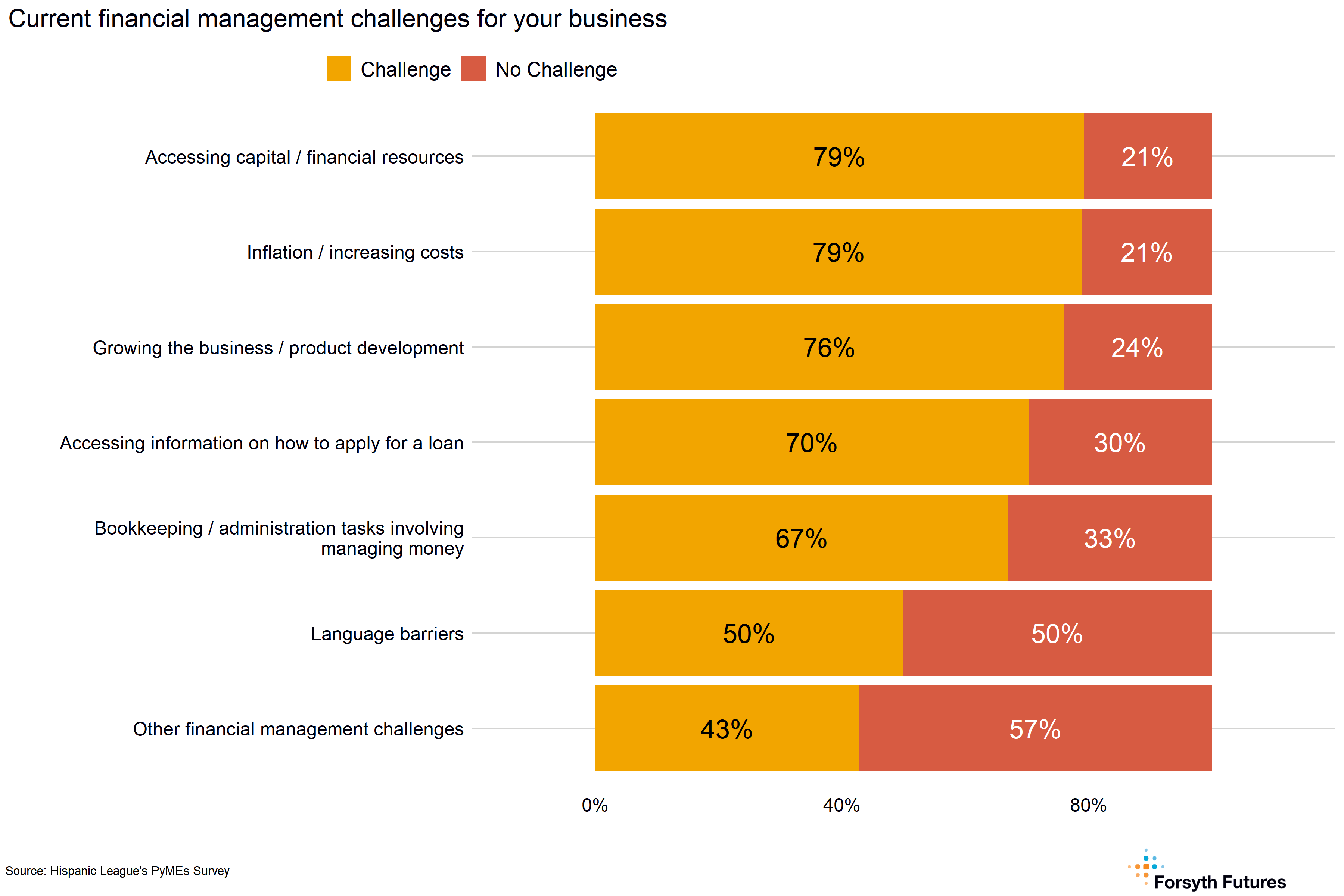
Most current and prospective owners had the following financial management challenges:
- accessing capital / financial resources (79%)
- inflation / increasing costs (79%)
- growing the business / product development (76%)
- accessing information on how to apply for a loan (70%)
- bookkeeping / administration tasks involving managing money (67%)
Other financial management challenges not listed but mentioned in the survey include difficulty getting a bank loan, issues creating websites, and lack of resources for business promotion.
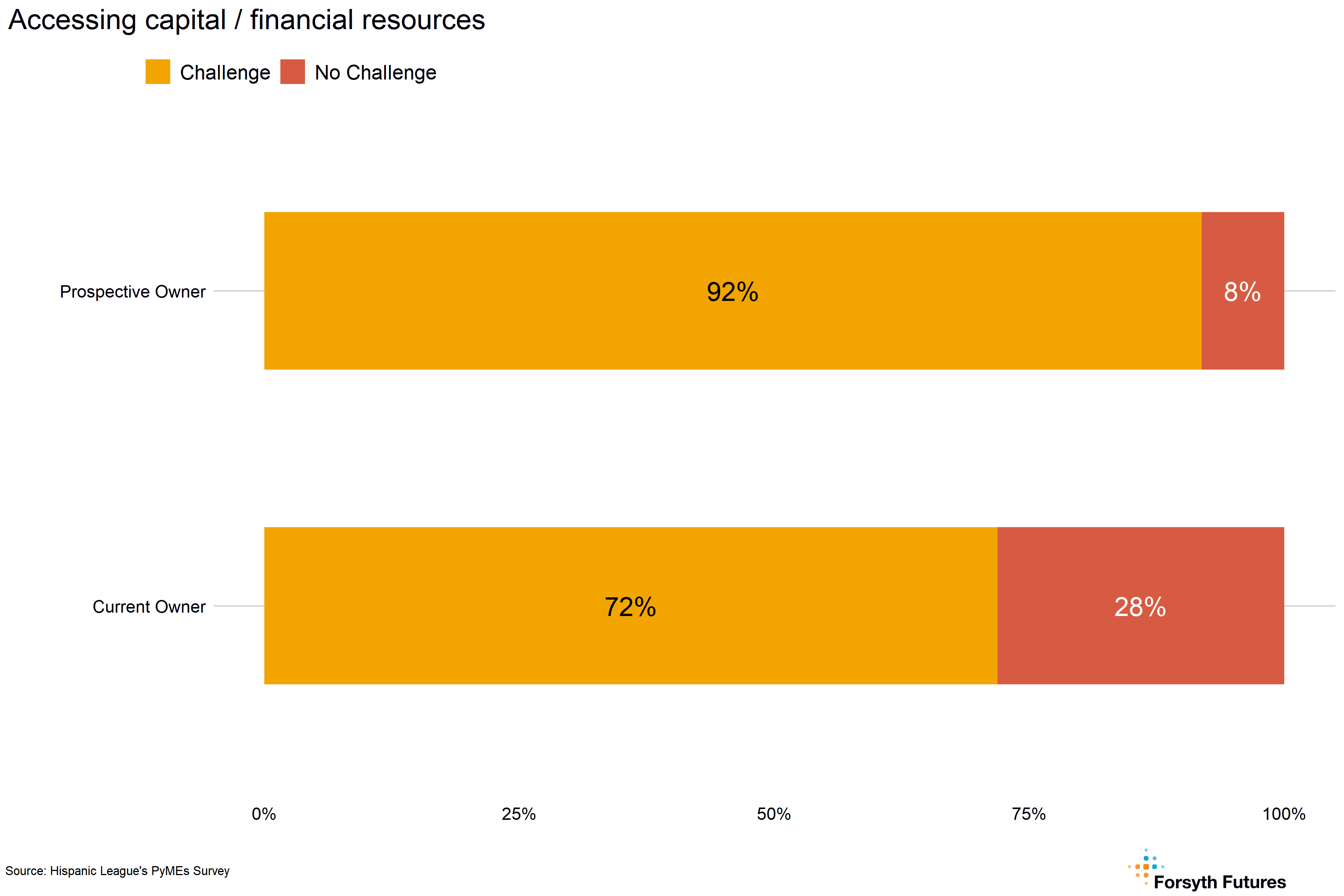
A significant relationship exists between being a prospective or current owner and whether or not accessing capital and financial resources is reported as a challenge. About 92% of prospective owners reported a challenge accessing capital / financial resources, compared to 72% of current owners.
7.4 Marketing / Advertising Challenges
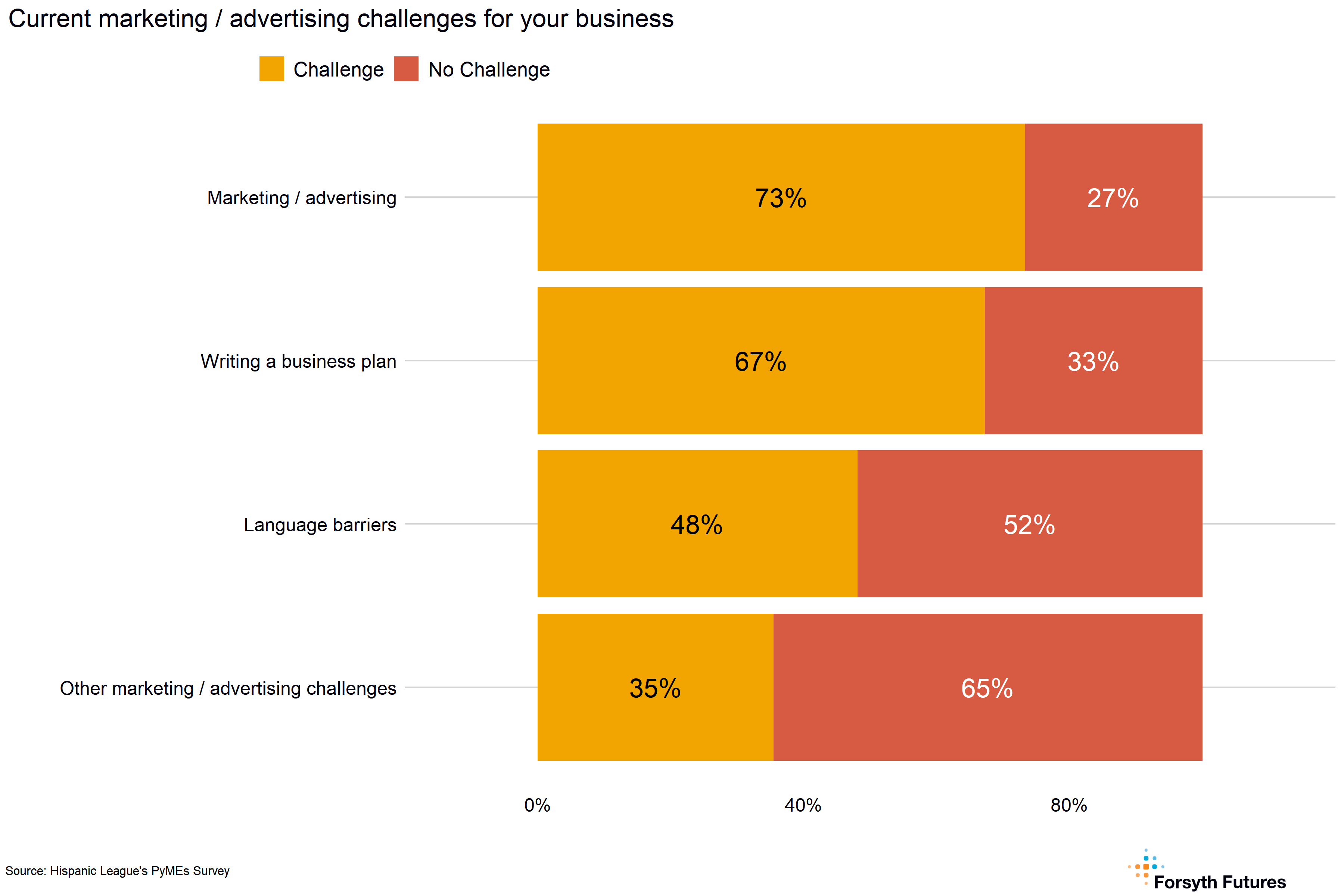
Most current and prospective owners had marketing / advertising business challenges, with marketing / advertising (73%) and writing a business plan (67%) having the highest percentage.
Other marketing / advertising not listed but mentioned in the survey include resources for raffles and promotions, low-cost website building, and including older people.
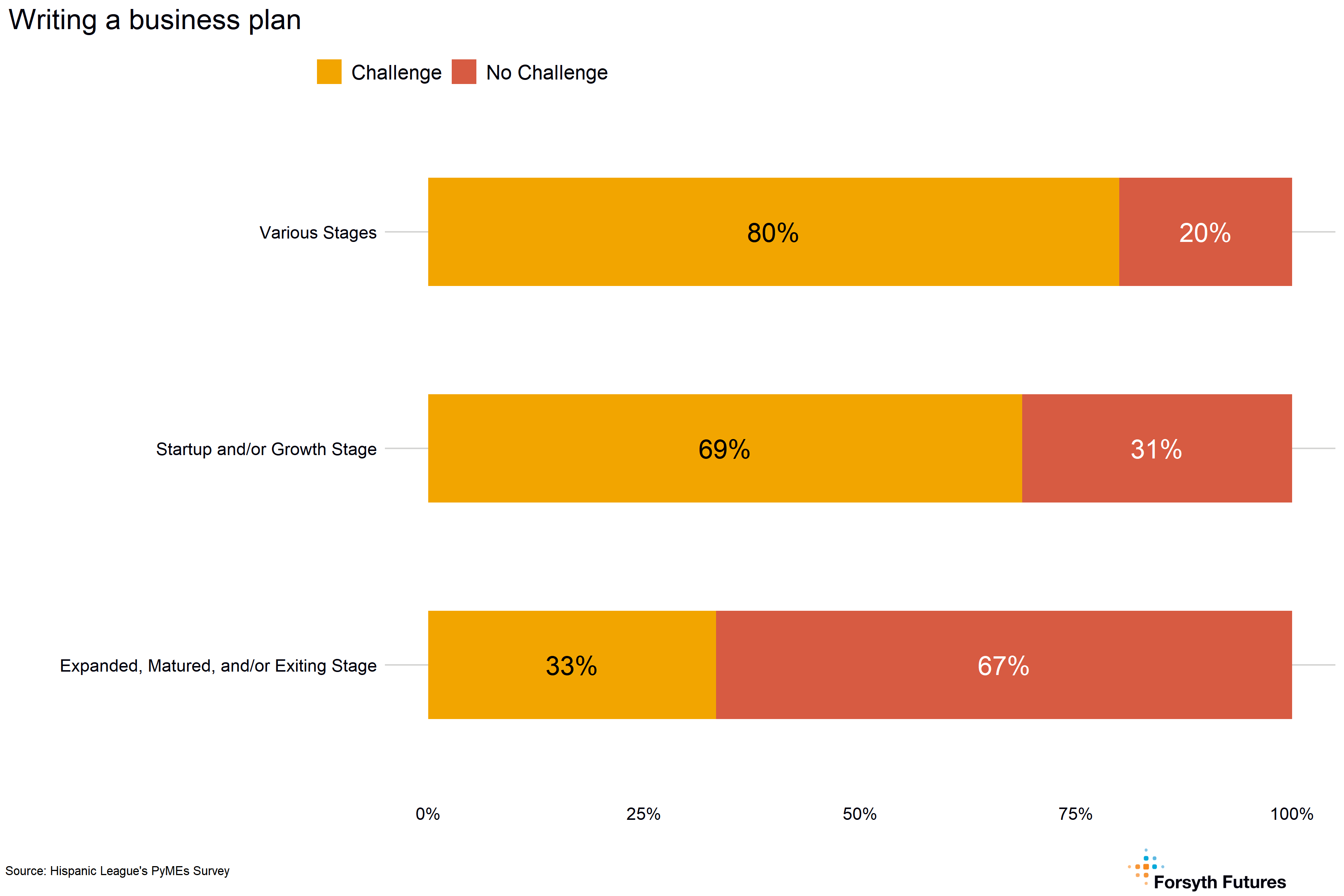
There were statistically significant differences among current business owners’ stages of business development and whether or not writing a business plan was identified as a challenge.
7.5 Business Regulations Challenges
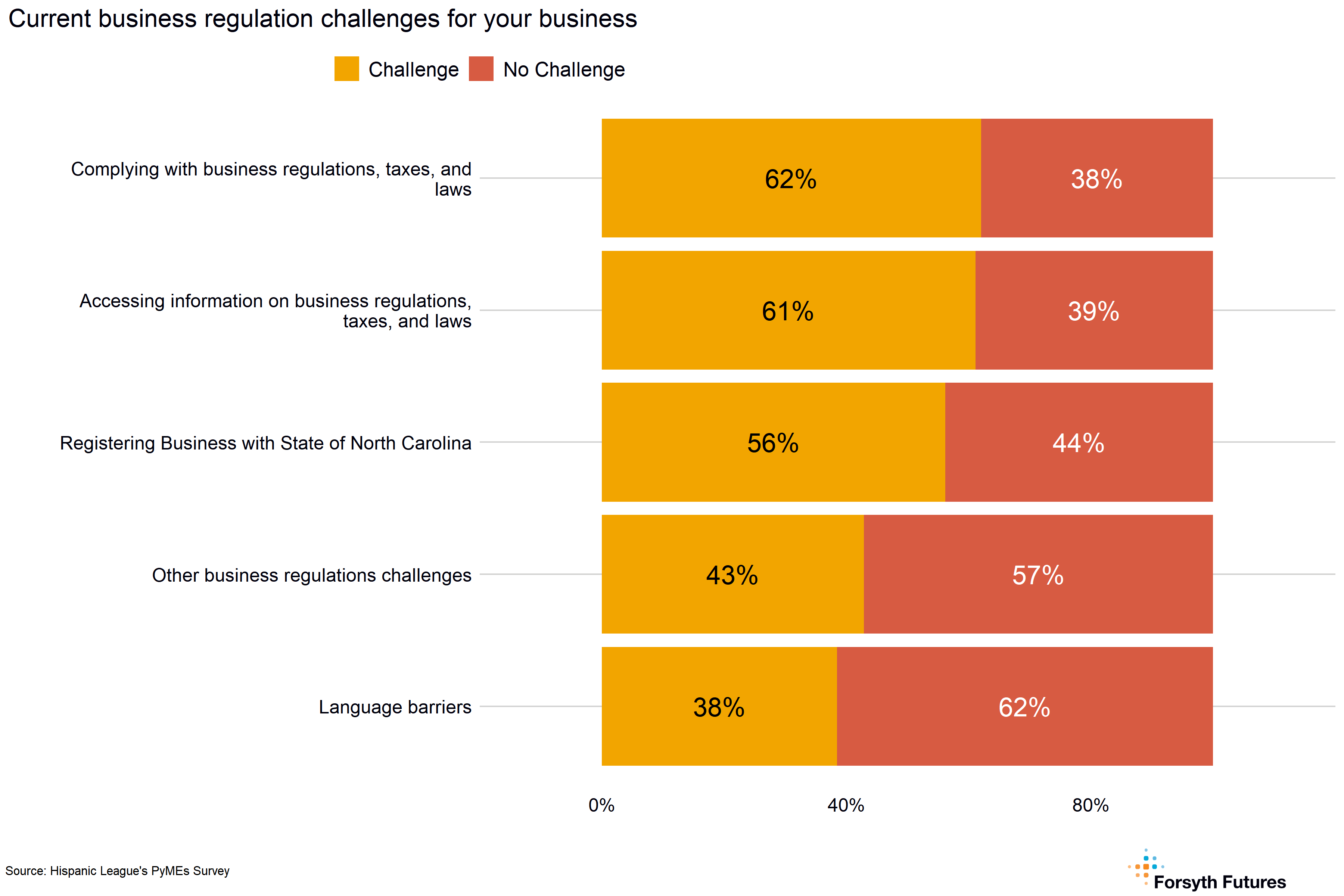
The majority of respondents had the following business regulation challenges for their business:
- complying with business regulations, taxes, and laws (62%)
- accessing the information on business regulations, taxes, and laws (61%)
- registering their business with the State of North Carolina (56%)
Another business regulation challenge not listed but mentioned in the survey was not even knowing where to start.
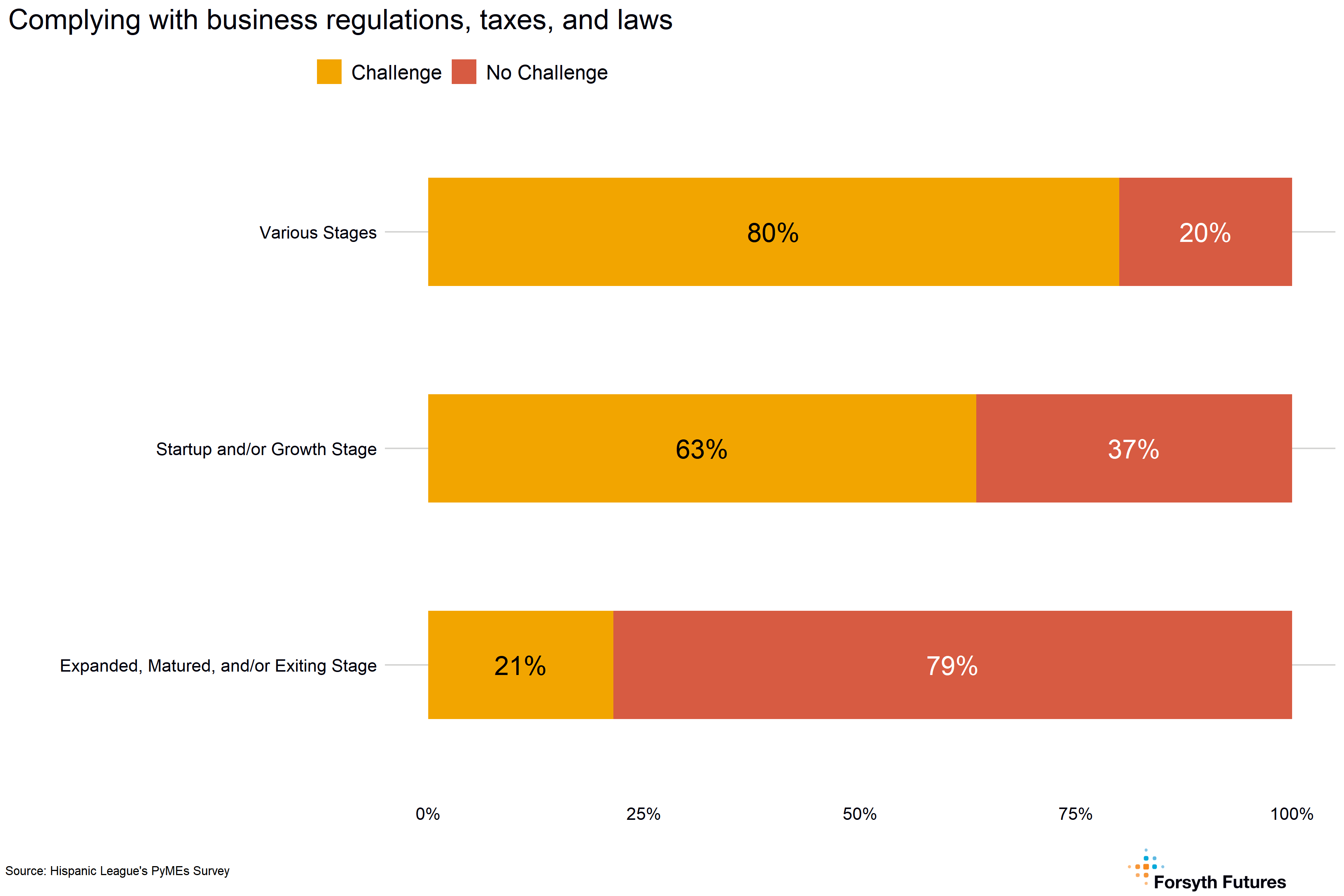
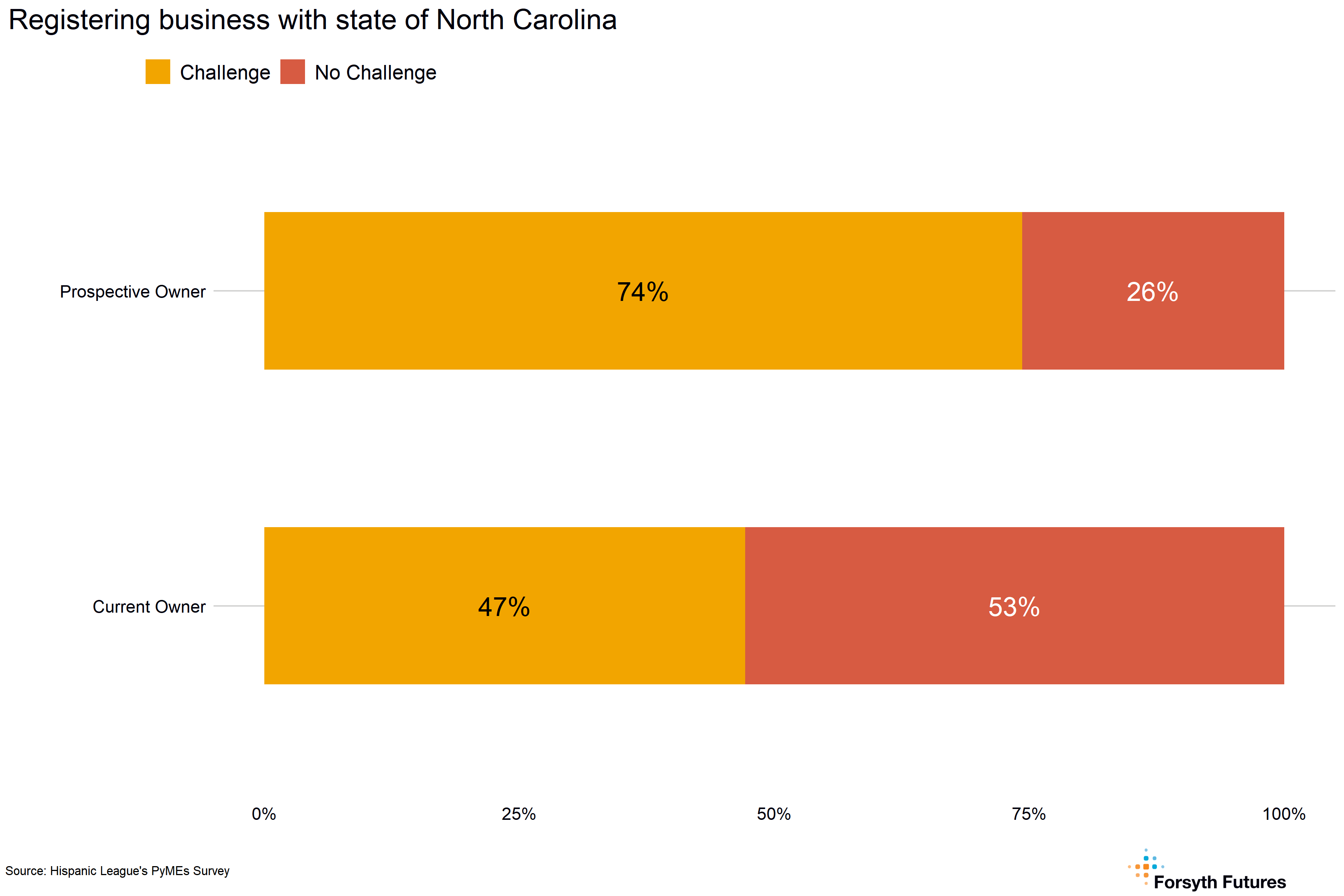
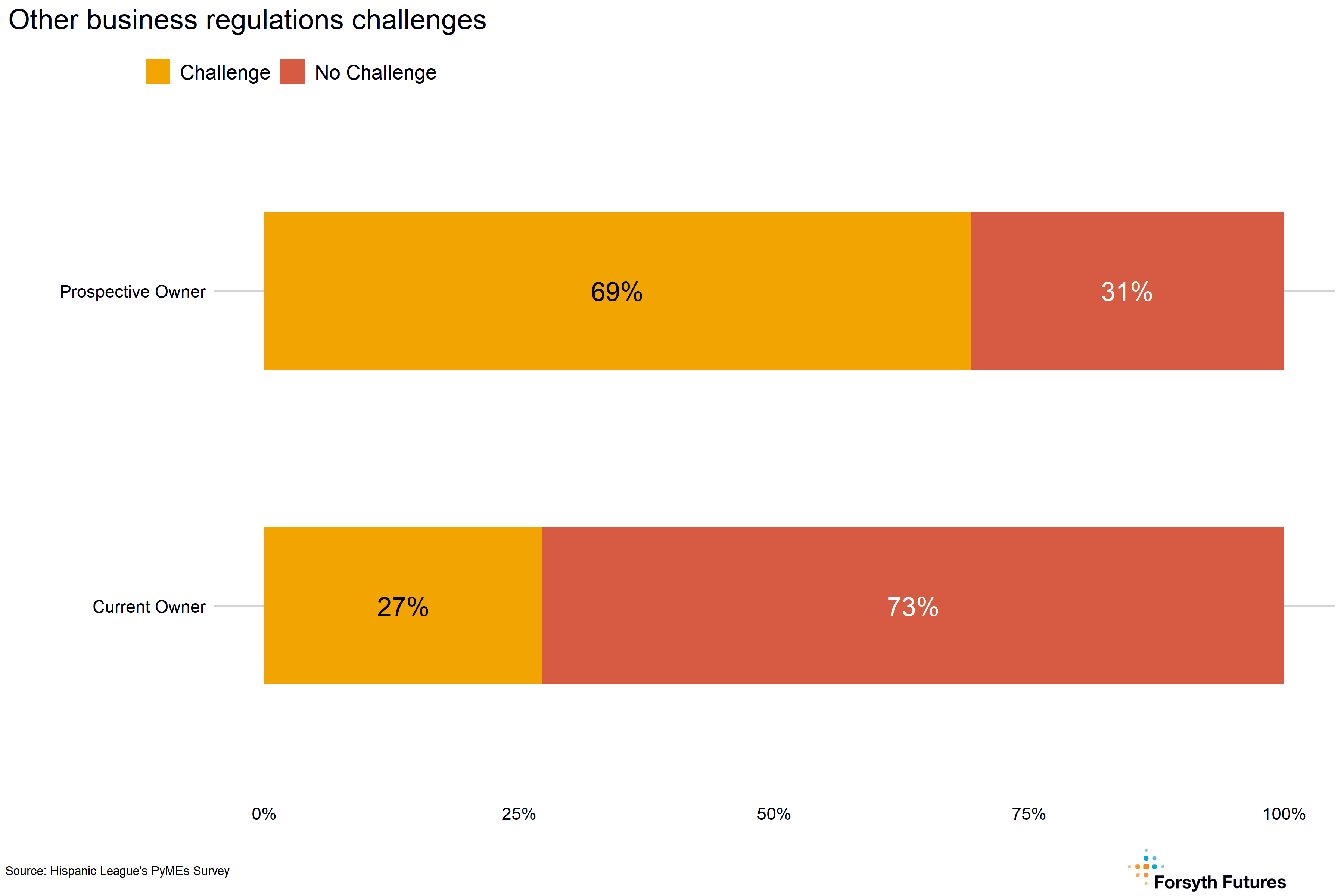
A larger percentage of prospective owners indicated challenges with registering a business with the State of North Carolina and other business regulation challenges compared to current owners.
The respondent’s business development stage also had different challenges related to complying with business regulations, taxes, and laws.
7.6 Location and/or Space of Business Challenges
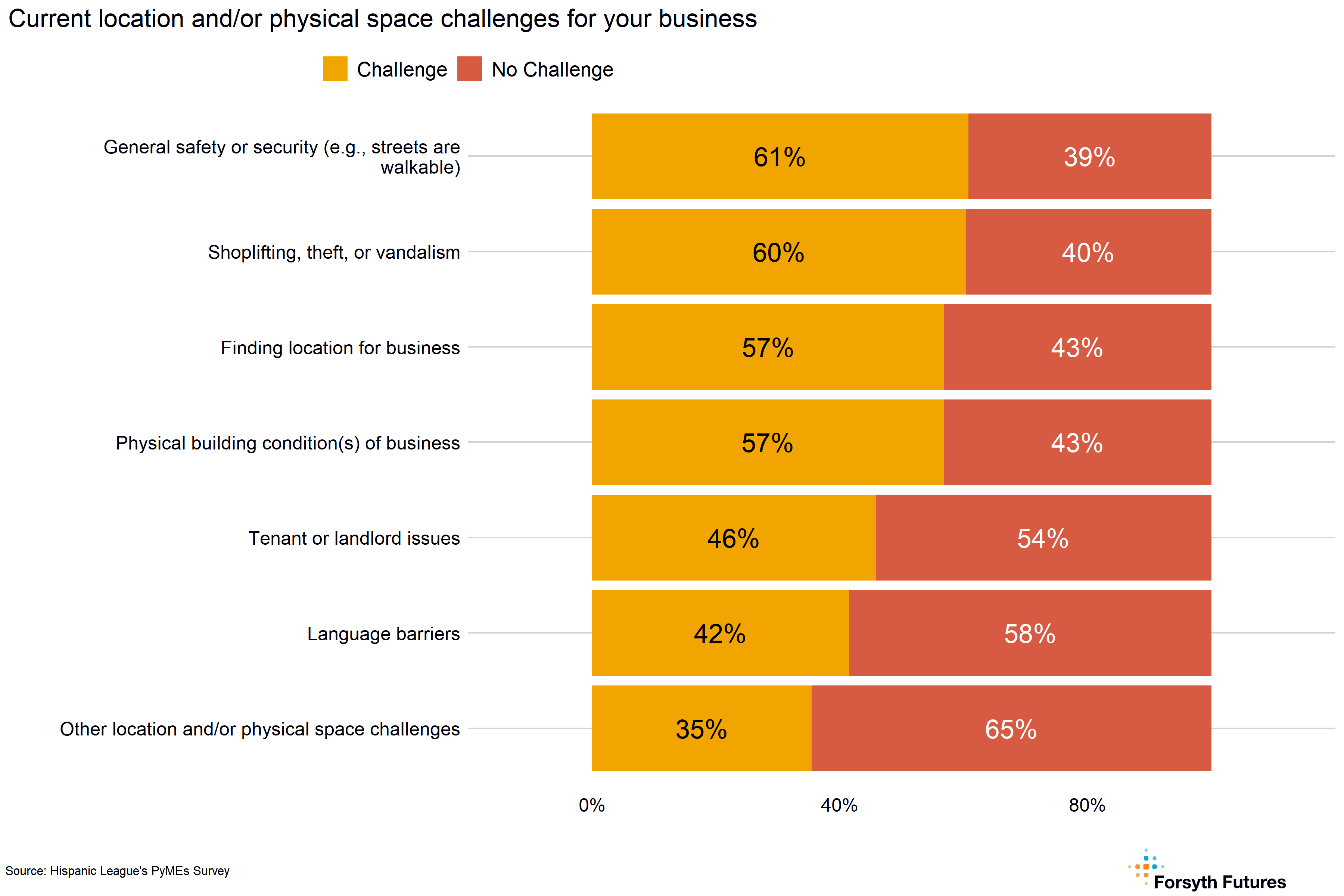
The majority of respondents had the following location and/or physical space challenges for their business:
- general safety or security (61%)
- shoplifting, theft, or vandalism (60%)
- finding a location for their business (57%)
- physical building condition(s) of business (57%)
Other location or space challenges not listed but mentioned in the survey include resources to make spaces more eye-catching and advice for renewing the lease.
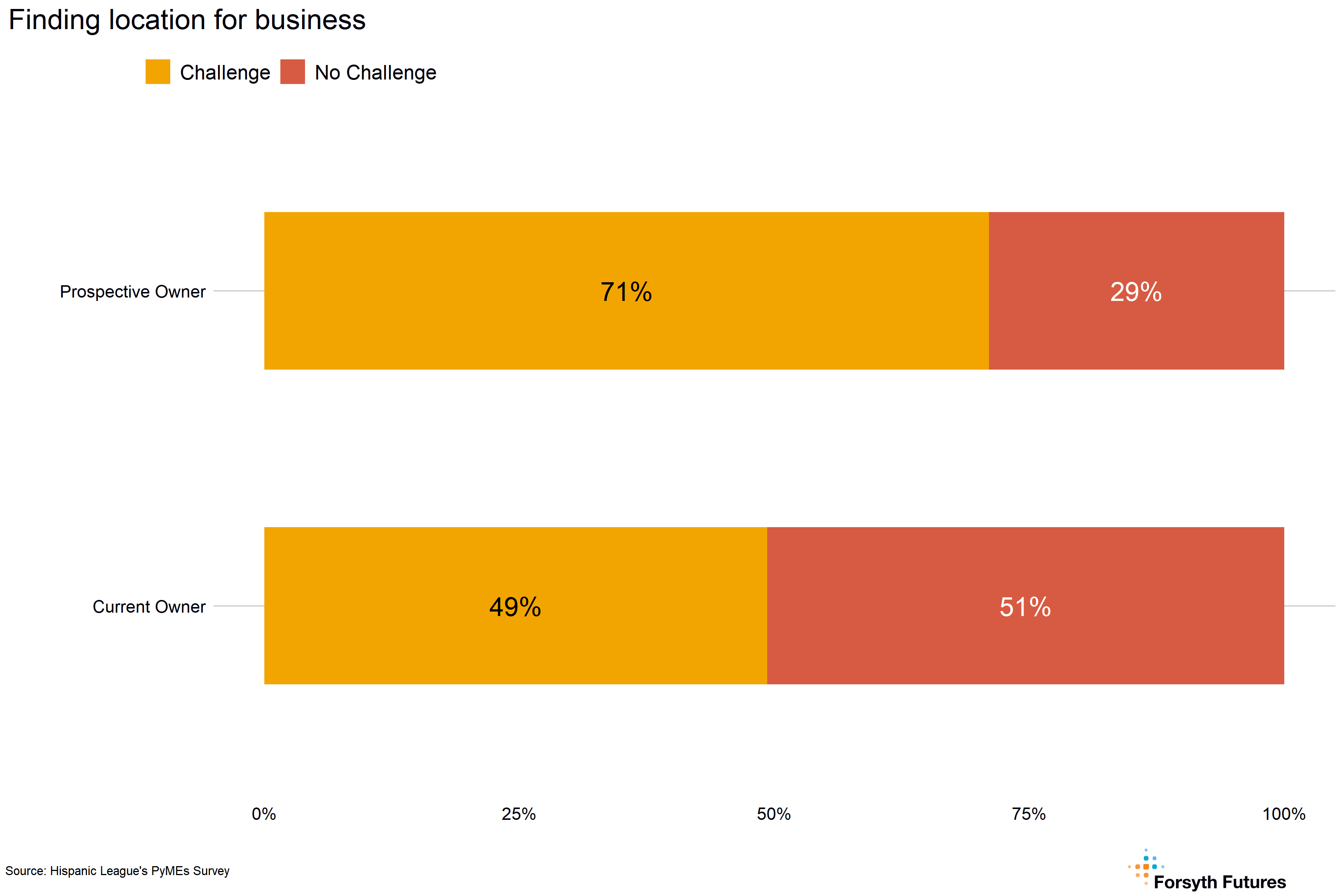
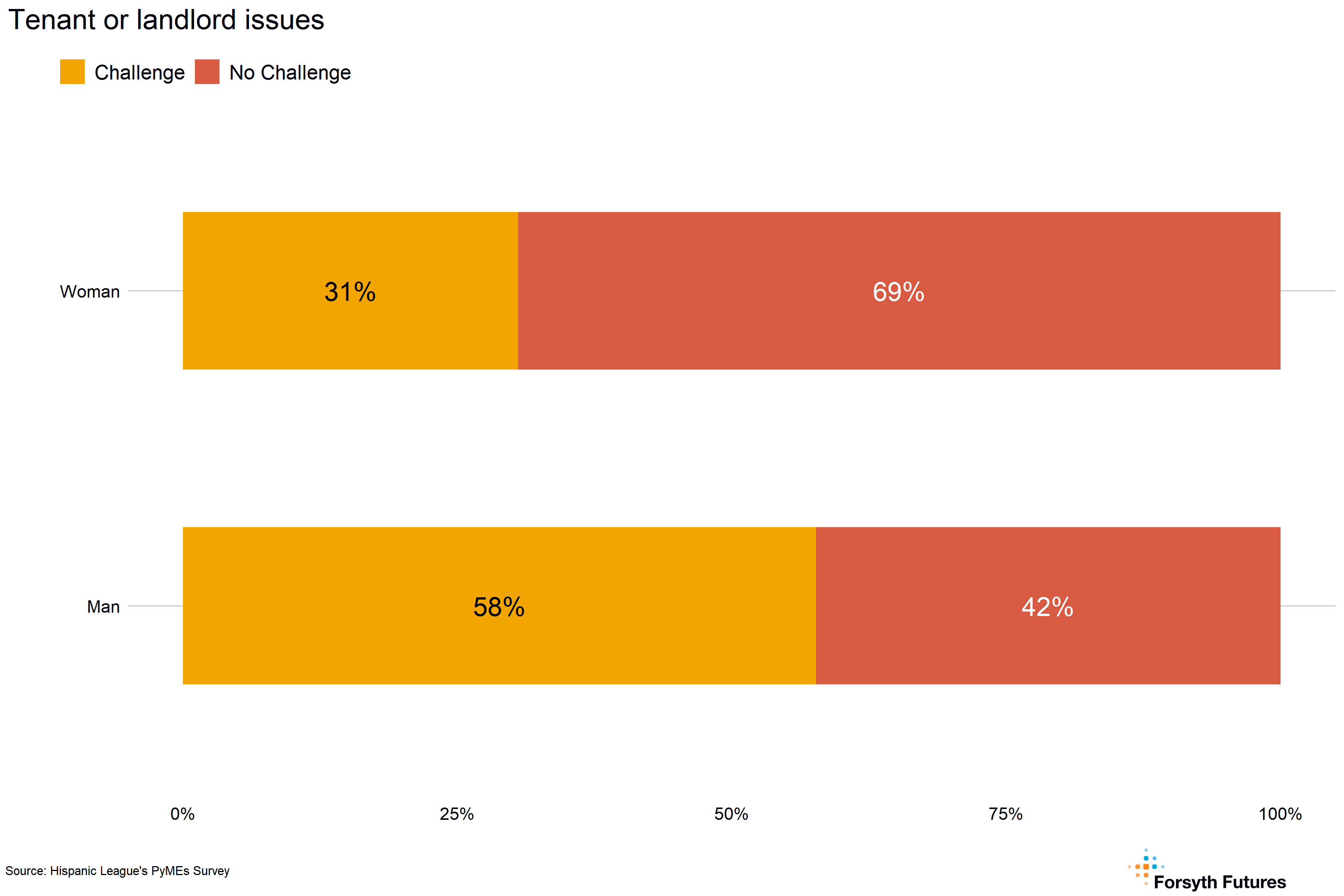
Prospective owners are more likely than current owners to have challenges finding a location for a business — about 71% of prospective owners identify this as a challenge, compared to 49% of current owners.
Current and prospective owners who are men are more likely than women to identify tenant or landlord issues as a challenge, with almost twice as many men as women identifying this as a challenge.
7.7 Personnel Challenges
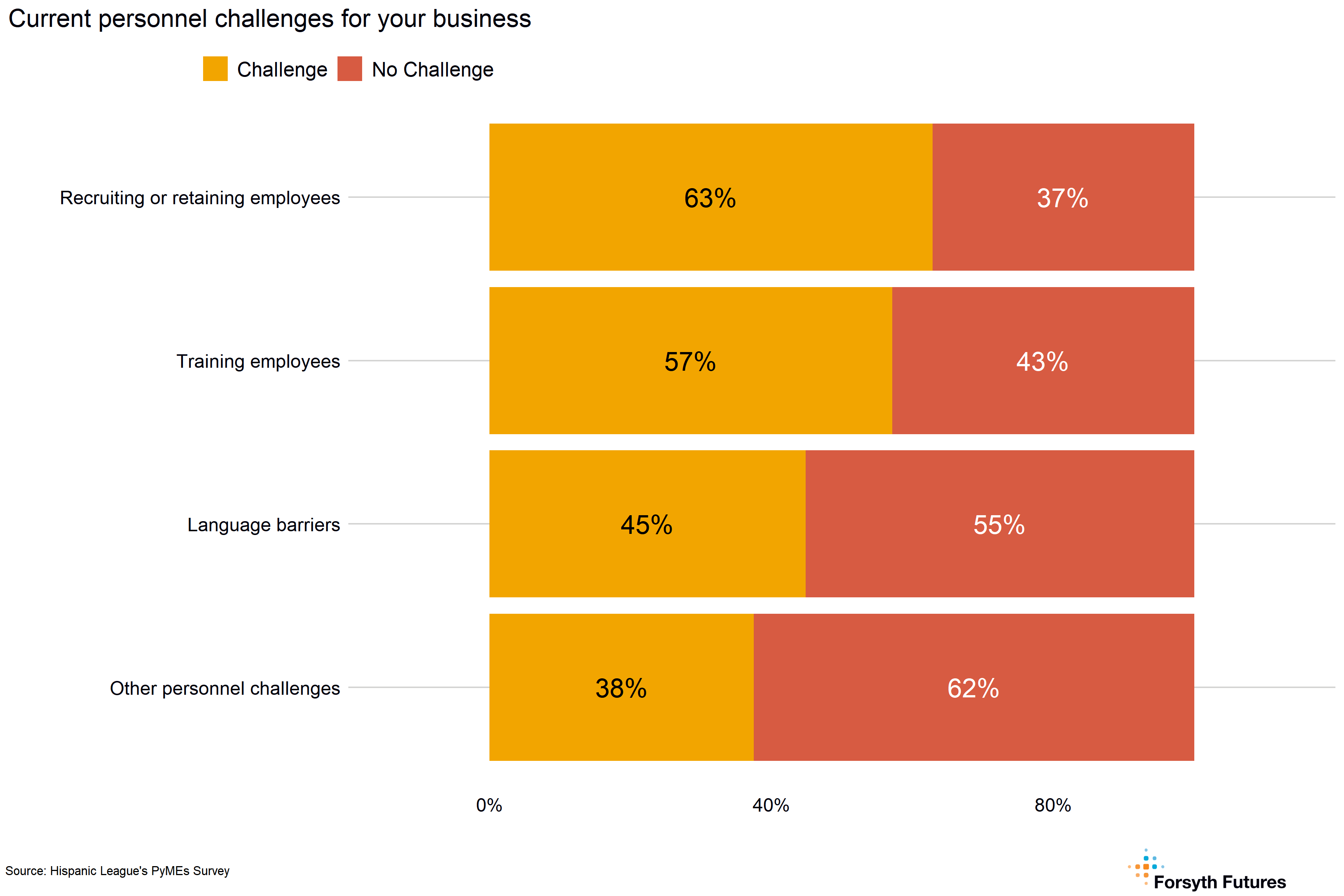
Most current and prospective business owners had personnel business challenges related to recruiting or retaining employees (63%) and training employees (57%). Other personnel challenges not listed but mentioned in the survey included a general comment about difficulty finding staff.
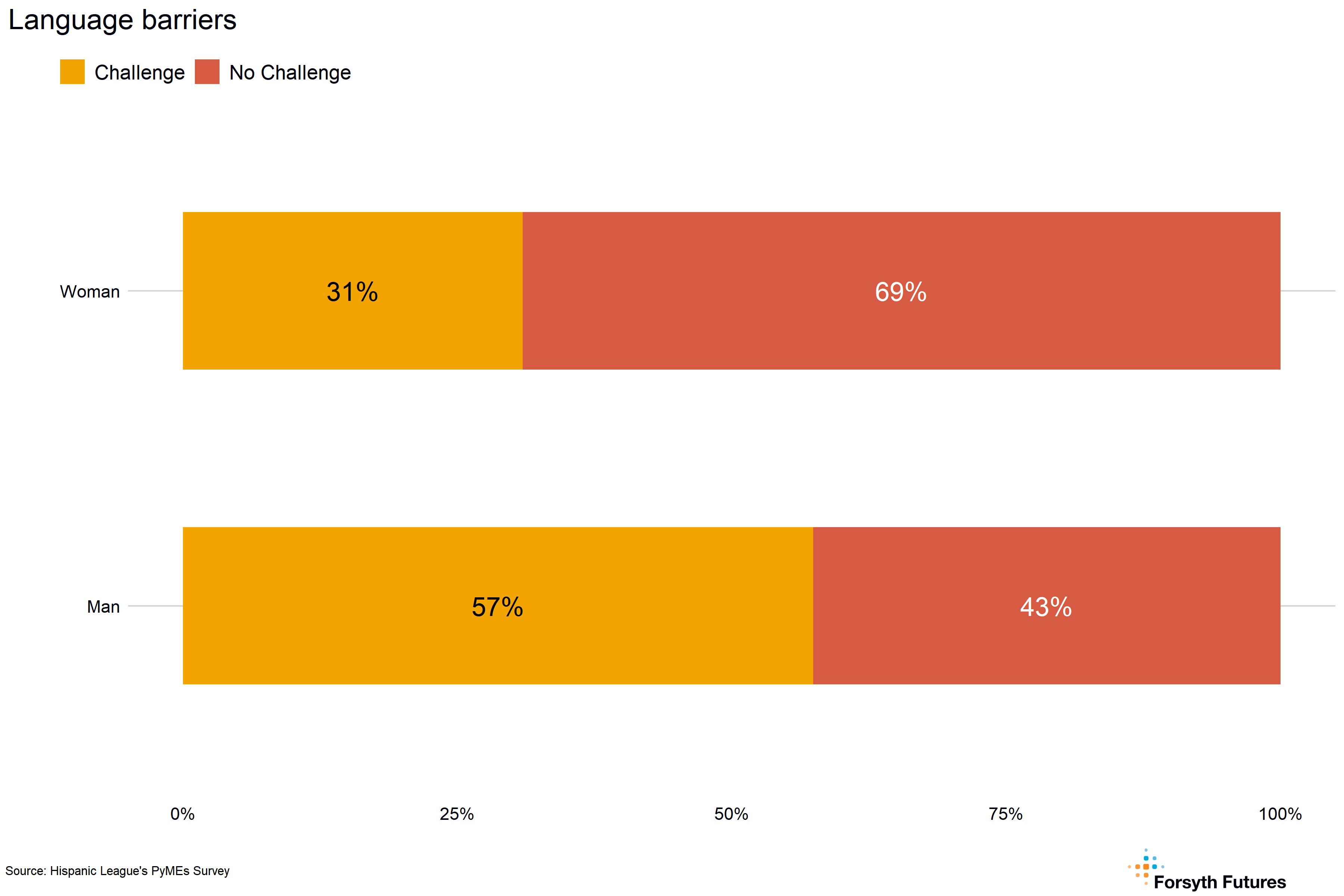
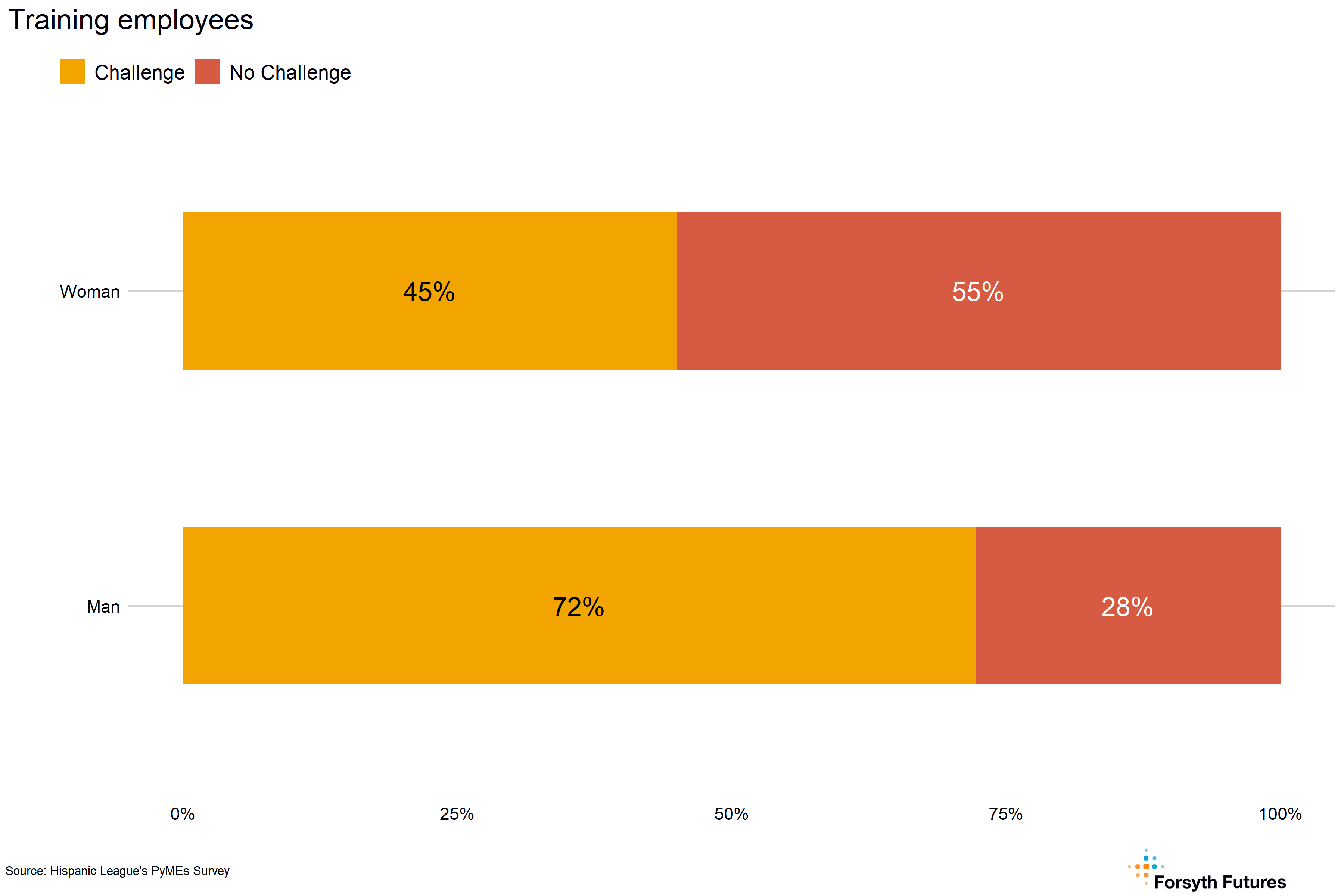
Men were more likely than women to report language barriers and training employees as personnel challenges.
7.8 Other Experiences about Starting or Operating a Business
7.8.1 Introduction
All respondents had open space to write about their personal experience starting or operating their business in Forsyth County; they could also discuss the business or entrepreneurial ecosystem at large in Forsyth County. This allowed respondents to provide input on questions not in the survey and expand on topics or categories covered in the survey questions. Results are summarized for each question below.
7.8.1.1 Experiences Starting or Operating a Business
Several respondents highlighted the need for more favorable policies for new business owners and opportunities for continued learning, such as entrepreneurship training, consulting support, tax training, and legal advice for licenses and insurance based on their experience. Some also indicated difficulty getting new customers, finding a location to rent, and getting all of the necessary equipment for their business. Respondents also highlighted a lack of resources for connecting with other Hispanic-owned businesses, insignificant support for minority and women-owned businesses, and negative experiences with social and government workers.
7.8.1.2 Business or Entrepreneurial Ecosystem at Large
Respondents feel several areas could improve to support the local entrepreneurial ecosystem in Forsyth County. These areas include a need for more startup resources, a better understanding of local business environments and policies, greater access to loans and networking opportunities, and more favorable startup conditions. One response mentioned the need for a Hispanic Chamber of Commerce in Winston-Salem, as they have in other cities, to help with networking / making connections to Latinx/Hispanic business owners. Additionally, respondents would like policies implemented to help them achieve better business development and receive more significant support, such as training programs or courses that correspond with their specific business needs.